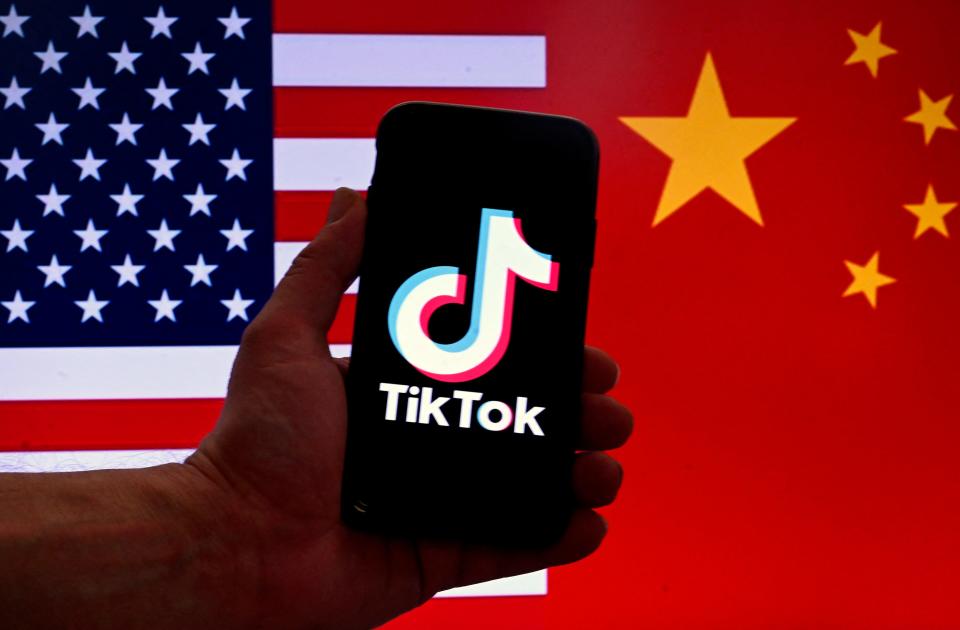How Tiktok is becoming an indirect political tool in the Texas Republican runoffs
Even before the just-enacted federal law that bans popular social media platform TikTok from the United States unless it is severed from its Beijing-based parent company, some Republican Texas House members battling to survive the May 28 runoffs have sought to link their opponents to the app because one of its major investors has become a financial player in their races.
The investor, Pennsylvania billionaire Jeff Yass, who owns 7% of TikTok parent ByteDance, emerged during the run-up to the March 5 primaries as a major donor to Gov. Greg Abbott's effort to defeat House Republicans who opposed "school choice" legislation during 2023 legislative session. Nine of those incumbents were defeated outright, and several others were forced into runoffs.
School choice, or vouchers, would use public money to help pay for students' private school tuition — a proposal that divided House Republicans last year.

Among those facing Yass-backed opponents is House Speaker Dade Phelan, R-Beaumont, who has been targeted for defeat by Lt. Gov. Dan Patrick and by former President Donald Trump. Phelan's campaign last week released a 30-second spot calling opponent David Covey "a puppet for West Texas billionaires and Pennsylvania TikTok investors" who are helping to underwrite the effort to elect enough school choice friendly Republicans to finally ensure the House passes such voucher legislation.
Republican state Rep. John Kuempel, a 14-year House veteran from Seguin, also invokes the Yass-TikTok connection in his online ad against challenger Alan Schoolcraft, who is seeking a political comeback after serving in the Legislature in the 1980s.
The American-Statesman reached out to the House incumbents and their opponents but did not receive responses.
The ads by Phelan and Keumpel do not mention Yass by name. But Phelan's campaign did issue an "In case you missed it" news release this month that reprinted an op-ed in the Beaumont Examiner that is harshly critical of Yass' ties to TikTok and accuses the platform of "selling the secret lives of our children to China."
More: Don't use TikTok? Here's what to know about the popular app
Rep. Justin Holland, a four-term Republican from the Dallas suburb of Rockwall who is running against former Donald Trump campaign official Katrina Pierson, goes after Yass by name in his online campaign messaging. Holland says Yass "made billions investing in TikTok" and accuses the platform of "turning young people away from American and Israel."
The federal TikTok ban, which was signed by President Joe Biden early Wednesday, was part of a sweeping $95.3 billion foreign aid package Congress passed late Tuesday to provide assistance to Ukraine, Israel and Taiwan. Supporters of the measure — which would ban TikTok unless the platform is sold — have said TikTok is controlled by the Chinese Communist Party and represents a security threat to the United States.
"This app is a spy balloon in Americans' phones," U.S. Rep. Michael McCaul, R-Austin, who chairs the Foreign Affairs Committee, said on the House floor last week. "It is a modern-day Trojan horse of the CCP used to surveil and exploit Americans' personal information."
The new law sets a nine-month deadline for the platform to be sold or be blocked from U.S.-based web hosting services.
The TikTok controversy cuts across the nation's partisan divide. Abbott, a three-term Republican, announced in February 2023 that the app would be banned from state-issued phones and computers, saying, "TikTok harvests vast amounts of data from its users’ devices — including when, where, and how they conduct Internet activity — and offers this trove of potentially sensitive information to the Chinese government."
The Statesman reached out to Abbott's office for comment but did not get a response.
More: To debate or not debate? Dade Phelan, David Covey trade blame over lack of political forum
At least 15 other GOP governors have taken similar actions. Biden, a Democrat, also banned TikTok from federally issued devices. During his last year in office, Trump signaled that he would ban the platform for reasons similar to those of Abbott and Biden, but he did not follow through. The former president, however, changed course as Congress began considering the legislation that is now law.
In a post last month on his own platform, Truth Social, Trump said the chief beneficiary of a TikTok ban would be Facebook co-founder and CEO Mark Zuckerberg.
"If you get rid of TikTok, Facebook and Zuckerschmuck will double their business. I don’t want Facebook, who cheated in the last Election, doing better," Trump posted. "They are a true Enemy of the People!"
U.S. Rep. Chip Roy, R-Hays County, who has clashed with Trump on other issues, said last month that the former president is "wrong" on the TikTok issue.
Lauren Cottingham, a Republican strategist who is not involved in state campaigns this cycle, said varying viewpoints on TikTok among GOP officials and candidates will likely make the issue a tough sell on the campaign trail in the runoffs.
"I think the party split on it," said Cottingham, adding that the school choice issue appears to have emerged as the top driver for Republican runoff voters.
Longtime Texas Republican operative Matt Mackowiak said that while the TikTok ban enacted by Congress, and the earlier prohibitions by Biden, Abbott and the other governors, are justified, he questioned the effectiveness of tying Yass to the platform in Republican runoffs where more salient matters tend to dominate the campaigns.
"Trump's endorsement is a factor in some of these races," said Mackowiak, chairman of the Travis County GOP. "The same with Abbott, the same with Patrick, same with (Attorney General Ken) Paxton. Those are the things that are going to decide them. I think TikTok's pretty low."
Statesman staff writer Keri Heath contributed to this report.
This article originally appeared on Austin American-Statesman: Elections 2024: How some Texas Republicans use TikTok ban in runoffs